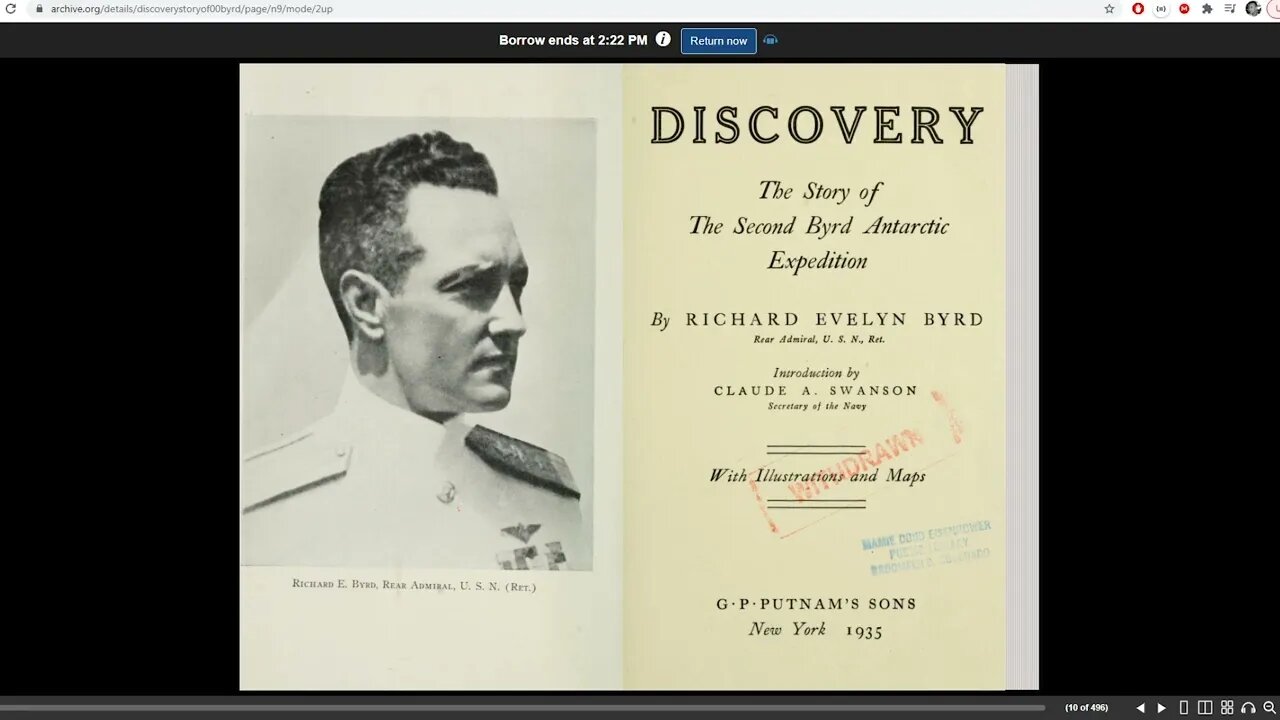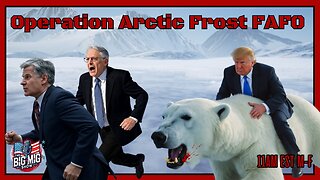Premium Only Content

The Antarctica Diet What To Eat To Survive 90 Days Unassisted
The Antarctica diet refers to the dietary requirements and recommendations for individuals who plan to survive unassisted in Antarctica for a period of 90 days or more. This extreme environment poses unique challenges, including harsh weather conditions, limited food supplies, and the need for high-calorie intake to sustain energy levels and maintain body warmth.
To survive in Antarctica, individuals must carefully plan their diet to ensure they consume enough calories, nutrients, and hydration. The following guidelines are typically considered:
Caloric intake: Due to the cold temperatures and physical demands of surviving in Antarctica, individuals need to consume a significant number of calories to maintain their energy levels. It is common for Antarctic expeditions to aim for a daily intake of around 4,500 to 6,000 calories.
High-fat foods: Fats are an excellent source of energy and help insulate the body against the cold. Foods rich in healthy fats, such as nuts, seeds, avocados, and oils, are typically included in the Antarctica diet.
Carbohydrates: Complex carbohydrates are essential for providing sustained energy. Foods like whole grains, legumes, fruits, and vegetables are good sources of carbohydrates and also provide essential vitamins and minerals.
Protein: Adequate protein intake is crucial for muscle repair and overall health. Lean meats, fish, eggs, dairy products, and plant-based protein sources like beans and lentils are typically included in the Antarctica diet.
Hydration: Staying hydrated is vital in Antarctica, even though the cold environment might not give the sensation of thirst. Drinking enough water and consuming warm liquids like tea or broth helps prevent dehydration and maintain bodily functions.
Nutrient-dense foods: Due to limited storage and weight constraints, it is essential to focus on nutrient-dense foods that provide a wide range of vitamins and minerals. Including a variety of fruits, vegetables, nuts, and seeds can help meet nutritional needs.
Supplementation: In some cases, individuals may require dietary supplements to ensure they are meeting their nutritional needs. This could include vitamin D, which may be lacking due to limited sunlight exposure, and omega-3 fatty acids, which are beneficial for overall health.
It's important to note that individuals planning to survive unassisted in Antarctica should consult with experts, such as nutritionists or medical professionals experienced in polar environments, to tailor their diet to their specific needs and requirements. Proper planning, research, and preparation are essential to ensure a safe and healthy diet while enduring the extreme conditions of Antarctica.
-
 0:05
0:05
The Relaxation Zone
2 years ago00244=32942=24612=25117
1.63K -
 LIVE
LIVE
The Big Mig™
2 hours agoOperation Arctic Frost FAFO!
5,170 watching -
 1:01:47
1:01:47
VINCE
3 hours agoThere Is More Than Meets The Eye With Trump's Ballroom | Episode 154 - 10/24/25
54.5K97 -
 LIVE
LIVE
Badlands Media
9 hours agoBadlands Daily: October 24, 2025
3,563 watching -
 LIVE
LIVE
Major League Fishing
8 days agoLIVE! - Fishing Clash Team Series: Patriot Cup - Day 3
112 watching -
 LIVE
LIVE
Film Threat
1 day agoFRANKENSTEIN + SHELBY OAKS + CHAINSAW MAN + MORE REVIEWS | Film Threat Livecast
37 watching -
 LIVE
LIVE
Side Scrollers Podcast
23 hours ago🔴FIRST EVER RUMBLE SUB-A-THON🔴DAY 4🔴BLABS VS STREET FIGHTER!
1,041 watching -
 1:07:07
1:07:07
Graham Allen
3 hours agoLibs Are FUMING Over Trumps Ballroom! + Trump ENDS ALL Trade Talk With Canada And NBA Scandal!!
93.7K63 -
 27:30
27:30
Simply Bitcoin
1 day ago $3.15 earnedAndré Loja: The Man Building a Sovereign Bitcoin Island
19.8K5 -
 30:50
30:50
Matt Kohrs
1 day agoPlan B w/ Rahim Taghizadegan || The Matt Kohrs Show
23.8K